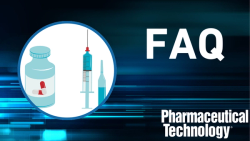
OR WAIT null SECS
- About Us
- Advertise
- Contact Us
- Editorial Info
- Editorial Advisory Board
- Do Not Sell My Personal Information
- Privacy Policy
- Terms and Conditions
© 2026 MJH Life Sciences™ , Pharmaceutical Technology - Pharma News and Development Insights. All rights reserved.
Drug Delivery Innovation Funded by the Gates Foundation
The Global Health division of the Bill and Melinda Gates Foundation is seeking solutions for health problems, such as infectious diseases, that impact the developing world, including identifying drug delivery forms to compensate for a lack of infrastructure in these regions.
The Global Health division of the Bill and Melinda Gates Foundation is seeking solutions for health problems, such as infectious diseases, that impact the developing world. One of the challenges is identifying drug delivery forms to compensate for the lack of infrastructure in these regions. “The lack of healthcare providers means there is a need for simple delivery to avoid mistakes,” explained Niya Bowers, senior program officer for Chemistry, Manufacturing, and Controls in Global Health & Integrated Development, Gates Foundation (1). “Another problem is poor access and a limited supply chain; the last mile is often carried by person, animal, or motorcycle on poor roads. Rugged, lightweight, and compact products are needed. Combination products also help so patients don’t have to travel to the clinic frequently. Drug stability is also a challenge due to the lack of a cold chain in many areas.”
Solutions must be both inexpensive and protect drug quality, added Bowers. The Foundation funds research programs with various partners. Of the 60 programs in their pipeline, 40% are complex solid oral delivery forms, not just simple tablets. For example, a long-acting oral drug for malaria prevention was developed in Dr. Robert Langer’s laboratory at the Massachusetts Institute of Technology using funding from the Gates Foundation and is being further developed for other potential uses at a spin-off company called Lyndra (2). Another example is a long-duration implant for HIV prevention. At the end of 2016, Intarcia received funding from the Gates Foundation to develop an anti-HIV prophylactic therapy using its Medici Drug Delivery System, which is a matchstick-sized, osmotic mini-pump implanted under the skin (3).
According to the Gates Foundation, these and other innovations could reduce and eventually eradicate infectious diseases such as malaria. The Foundation has committed nearly $2 billion in grants to combat malaria and more than $1.6 billion to the Global Fund to Fight AIDS, Tuberculosis, and Malaria (4).
References
1. N. Bowers, “Leveraging Modern Manufacturing for Global Health-Is this Possible?” presentation at IFPAC (North Bethesda, MD, 2018).
2. MIT, “New Capsule Achieves Long-Term Drug Delivery,” Press Release, Nov. 16, 2016.
3. Intarcia, “Intarcia Secures Second Close of the Series EE Equity Financing for an Additional $206M; As Part of the Financing and a New Strategic Initiative, Intarcia Now Aims Its Medici Technology Towards Preventing HIV,” Press Release, Dec. 29, 2016.
4. Gates Foundation, “Malaria: Strategy Overview,” www.gatesfoundation.org/What-We-Do/Global-Health/Malaria, accessed Aug. 27, 2018.
Article Details
Pharmaceutical Technology
Vol. 42, No. 10
October 2018
Page: 18
Citation
When referring to this article, please cite it as J. Markarian, "Drug Delivery Innovation Funded by the Gates Foundation," Pharmaceutical Technology 42 (10) 2018.
About the Author
Jennifer Markarian is manufacturing editor for Pharmaceutical Technology.
Related Content:

 Download Issue: Pharmaceutical Technology-10-02-2018
Download Issue: Pharmaceutical Technology-10-02-2018

